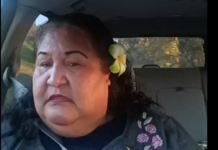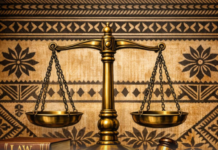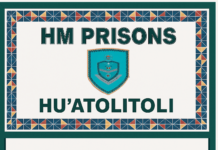KANIVA COMMENT: What can we expect from Prime Minister Hu’akavameiliku’s strong reaction to the king’s memo rejecting the appointment of two Cabinet Ministers?

As Kaniva News reported earlier, the Privy Council issued a letter saying King Tupou VI had withdrawn his “confidence and consent” in Defence Minister Hu’akavameiliku Siaosi Sovaleni – who is also the Prime Minister – and Foreign Minister Fekitamoeloa ‘Utoikamanu.
In response, Hon. Hu’akavameiliku told the king he was still confident in the Minister of Foreign Affairs and they both still retained their ministership in those two portfolios up to now.
President of the Tonga Law Society, Lopeti Senituli, who was media adviser to ‘Akilisi Pohiva from 2018-2019, told Radio New Zealand it was plausible that the Minister for Foreign Affairs and Prime Minister had clashed with the King on some issue of foreign policy and defence.
RNZ said the King’s action could signal a constitutional crisis.
Kaniva News believes King Tupou VI’s action was extraordinary and could be seen as a declaration of his lack of confidence in the Prime Minister, who was elected to the position.
Tonga’s Parliamentary processes may not be perfect, but they are intended to place power in the hands of its elected representatives.
This is not the first time King Tupou VI has publicly criticised his Ministers and the Prime Minister. His predecessors also had form in this matter.
Former Finance Minister rejects king’s demand
In 1982 King Tupou IV fired the then Minister of Finance Mahe ‘Uli’uli Tupouniua. Tupouniua was the first commoner to be appointed by the late king Tupou IV as his regent.
Reports at the time claimed Tupouniua Snr was dismissed because he rejected His Majesty’s demand for money which had not been allocated in the government’s budget.
Democrat supporters in New Zealand said the government’s response to the King’s memo helped promote democracy. They said the power given to the people must not be taken away, but there were indications that King Tupou VI was not in favour of democracy.
In 2017 the King tried to revoke the government of long-time democracy campaigner ‘Akilisi Pōhiva’s .
Members of the Democracy and Media for Tonga’s Political Reform 2010 Comiitte said the King also responded negatively in 2019 when the then Prime Minister Pōhiva Tu’i’onetoa asked His Majesty to let him join the Privy Council so he could inform him on government matters.

Hon. Tu’i’onetoa also asked the King to transfer the Privy Council’s power to choose the Commissioner of Police and give it to the Minister of Police .
The committee told Kaniva News: “The King lectured Hon. Tu’i’onetoa and told him in Tongan “taki taha tu’u pe ‘i hono laini”, figuratively meaning “just stay in your Cabinet and I will keep to my own Privy Council.”
Last week Deputy Prime Minister Samiu Vaipulu repeatedly said the matter should be left to the Prime Minister.
He said the letter was not addressed to Parliament and that the government was dealing with it. The question is what Prime Minister Hu’akavameiliku will do now?
If he follows in his father’s footsteps, the results could be quite interesting. The late Dr Hu’akavameiliku was a strong advocate for reform when many people considered the subject unthinkable.
Dr Hu’akavameiliku Snr was the first scholar and Cabinet Minister as well as Deputy Prime Minister to make a proposal to King Tupou IV Privy Council asking His Majesty to set up a commission to review the constitution in 1975. King Tupou IV was king Tupou VI’s father.
Dr Hu’akavameiliku Snr’s proposal must have been a very tough move at a time when the monarch’s right to rule was strongly seen as taboo in all respects.
Kenneth Bain quoted Dr Hu’akavameiliku Snr (Dr Langi Kavaliku) in his book The New Friendly Islander: A Voice from Within, as saying:
“…in 1975 I put up a specific proposal to His Majesty for constitutional change, designed to give people a greater voice in the course of their affairs. It was debated in cabinet at 12 separate meetings, deferred time after time and eventually dropped… It aimed to change to a fully elected system over a period of time not less than nine and not more than fifteen year …Now (1991) sixteen years later time may be running out. It is vital in my opinion that the government takes that initiative and announces a Constitutional Review Commission. It should just accept the principle of examining these matters and start the process publicly. ..But sometimes I don’t know whether we can afford to wait too long.”
The Late ‘Akilisi Pohiva said in an interview that his group of Tongan scholars at the University of the South Pacific, known as the Loma group, undertook to pursue Dr Hu’akavameiliku Snr’s proposal to change the monarchical system in 1975 to a fully elected political system. The Loma group’s persistence saw its fruition in 2010, after King George V agreed to relinquish his executive power to the people.
Will King Tupou VI’s actions prompt the Prime Minister to continue his father’s reforms?







